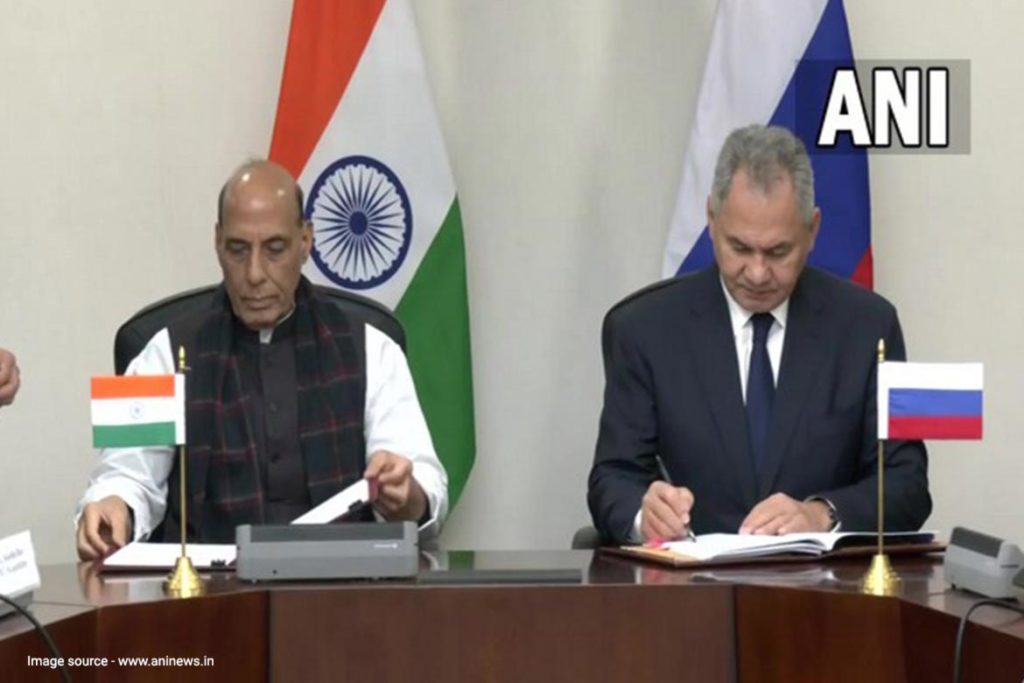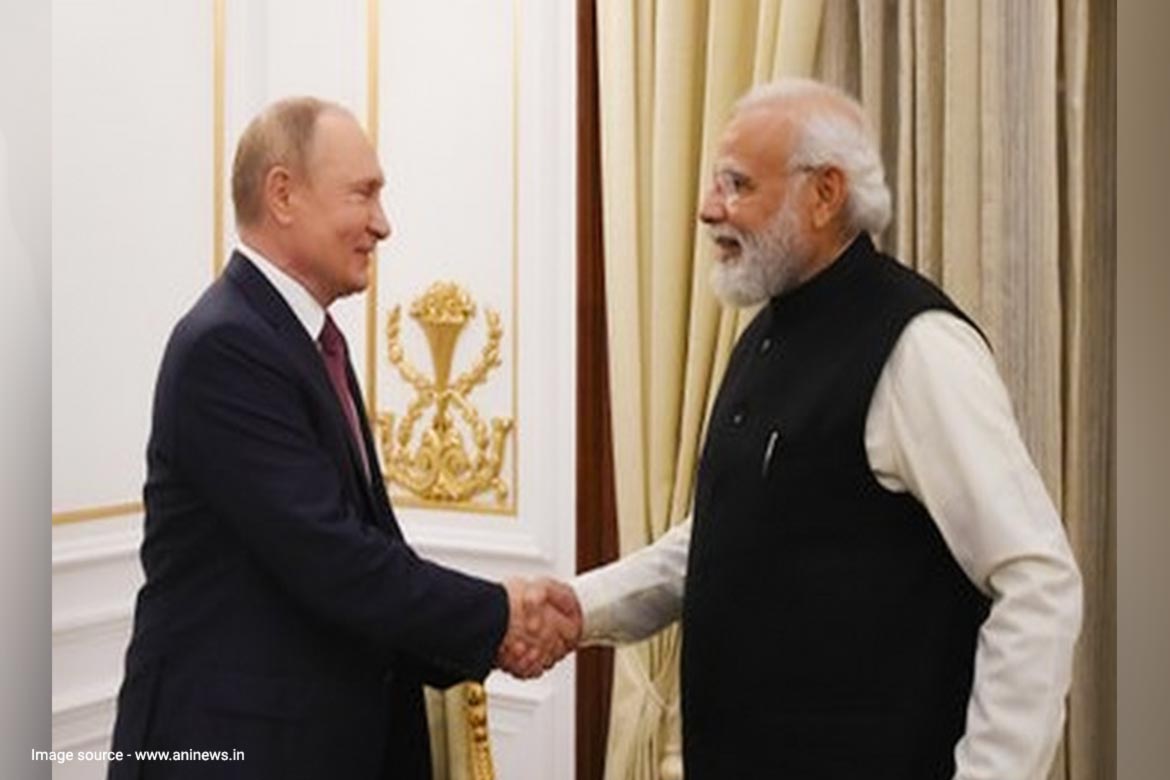Lately, the 21st India-Russia Annual Summit was organized in India, under which the maiden 2+2 Ministerial Dialogue between the Foreign and Defence Ministers of both the countries was also concluded. This was the Russian President’s first bilateral meeting with any country since the outbreak of the COVID pandemic, showing that the long-standing ties between the two countries still remain as strong as ever.
However, the ongoing conflict between Russia and the West and the absence of a widely thriving commercial relationship between India and Russia remain two major obstacles to the revival of the bilateral partnership between the two countries.
Where do we connect?
India and Russia are members in many common forums including BRICS and Shanghai Cooperation Organization (SCO). Besides, India has helped Russia join the Indian Ocean Rim Association (IORA) as a dialogue partner, which can give Russia a dominant position in the Indian Ocean region. On the other hand, Russia played an important role in facilitating the mutual meeting and dialogue of Indian and Chinese foreign ministers on the side-lines of the SCO summit held in Moscow, to resolve the ongoing standoff in Ladakh.
Simultaneously, in the United Nations Maritime Security Conference held under the chairmanship of India, Russia made a vocal display of its closeness with India.
If we talk about India-Russia Annual Summit, it is the highest institutional dialogue mechanism in the strategic partnership between India and Russia. The latest summit is the institutional creation of a new 2+2 mechanism, which brings together foreign and defence ministers from both sides. Russia, along with the US, Japan and Australia, has now become the fourth nation with which India has drawn up such a joint framework.
Russia is a very strategic partner of India in the Defence sector. At present 65% of the weapons/equipment of the Indian Armed Forces are of Russian origin and India is dependent on Russia for their spare parts. Despite strong opposition from the US, India has procured the S-400 Triumph missile from Russia. For the time being, India has escaped US sanctions for the purchase of S-400 missiles, but India’s deepening defence ties with Russia will continue to make the United States as well as China uncomfortable and worried.
Although Delhi and Moscow have deep military ties, they have found a huge failure in promoting commercial relations. India-Russia’s annual trade is only $10 billion, while Russia’s annual trade with China is worth a little over $100 billion. On the other hand, India’s trade in goods with the US and China is at the level of $100 billion.

Also read: Future of Earth: What COP26 Has Offered To The Only Living Planet?
Why India is important to Russia?
Continuous conflict with America, Europe and Japan has brought Moscow closest to Beijing, but Russia is also well aware of the dangers of being completely dependent on neighbours like China. While much remains to be done to restore Russia’s ties with the West, maintaining the traditional partnership with India is politically important for Moscow.
Challenges
The growing military partnership between Russia and China and their shared opposition to the Indo-Pacific Framework makes India uncomfortable. India’s trade with China continues to grow despite political tensions, while commercial ties between the two countries remain stagnant despite its good political ties with Russia.
Russia sees ‘Quad’ as ‘Asian NATO’ and believes that such a military alliance in Asia would have adverse consequences.
Cementing this bond
If relations between Washington and Moscow improve, structural barriers posed by widely differing approaches to the macro power equation and the regional security environment can be reduced. A less conflicting relationship between the two countries will be a great relief for India.
Connectivity is another important driver in the strategic partnership, ensuring inherent commercial benefits and overall economic growth.
The proposed Chennai-Vladivostok Maritime Corridor (CVMC) in parallel to the multimodal International North-South Transport Corridor will boost India’s strategic intent in the South China Sea and the Indo-Pacific, where its naval presence is connected to the Russian Far East.
The remote regions of Siberia, the Arctic, and the Far East are home to one of the world’s largest reserves of hydrocarbons, metallurgical coke, rare-soil metals and precious metals. India and Russia can work with countries like Japan and Korea to promote joint investments in exploration in the Far East, the Arctic and Siberia.
Given the largely unknown factors involved in climate change, it would be appropriate for India to accelerate its energy transition from fossil fuels to renewable energy. Russia, one of the major global players in the energy market, may emerge as an essential partner for such a transition to India.
Fortunately, both countries have a wide record of bilateral cooperation in the energy sector, but undoubtedly more efforts are needed to expand cooperation.
While India and Russia cannot do much about engagement with each other’s rivals, Delhi and Moscow should not remain complacent over the deteriorating state of their commercial relations.
To begin the revival of their relations, India and Russia should focus on building a way to comprehensive economic cooperation and a better understanding of mutual interests in the Indo-Pacific.
Read more: Know India Better: Indian Railways’ ‘Bharat Gaurav’ Project will offer Theme based Tourism
